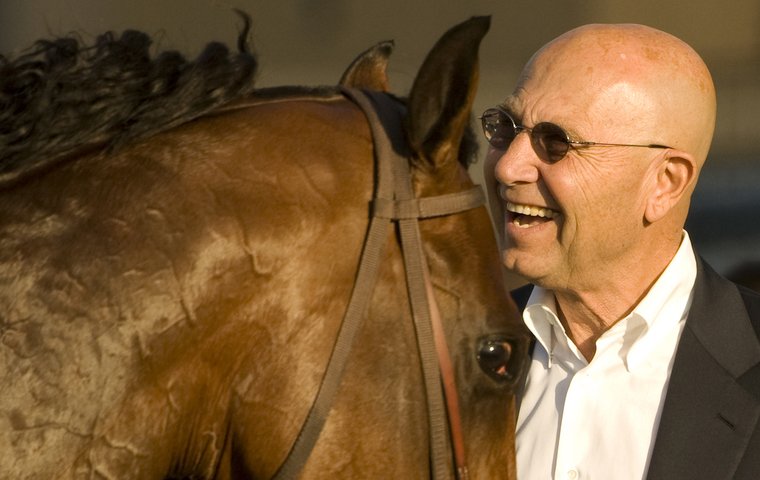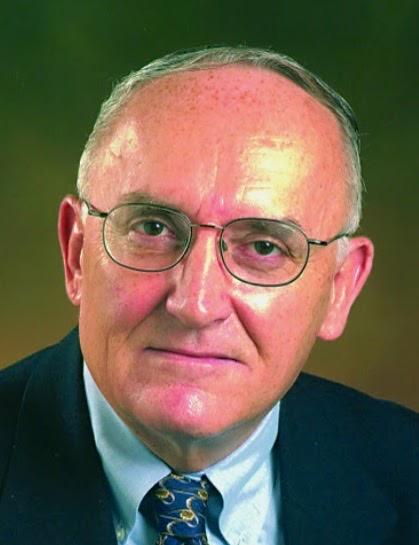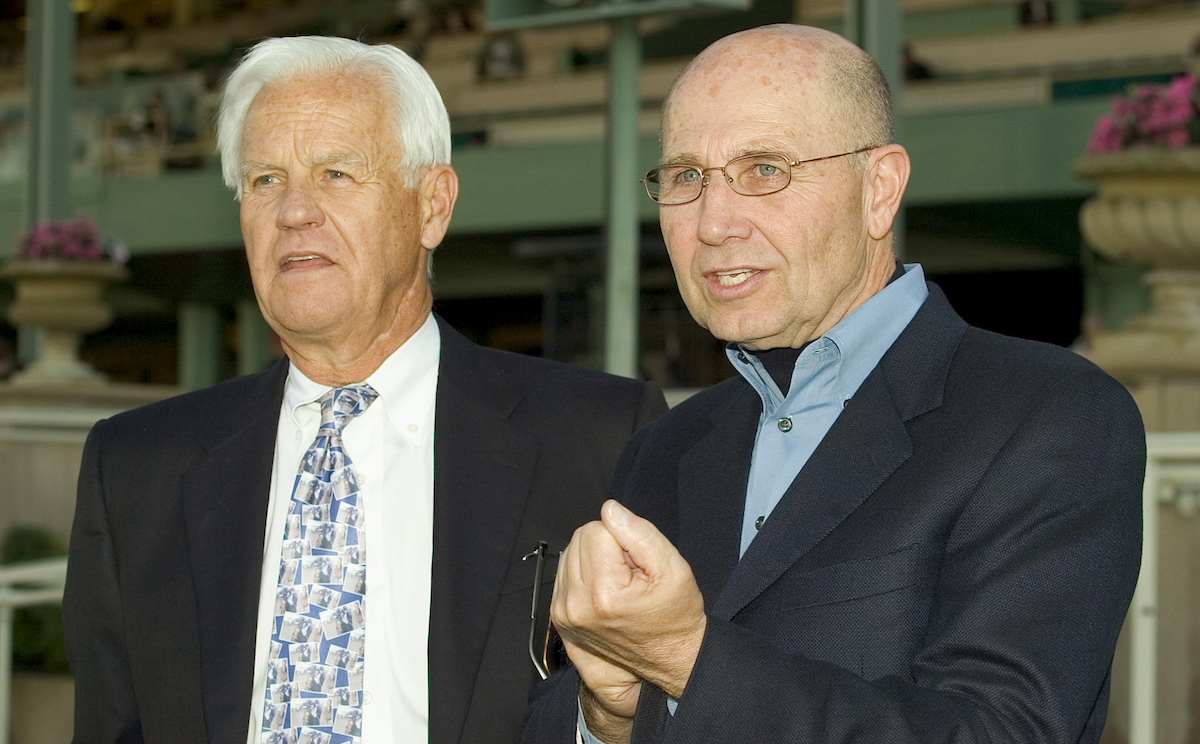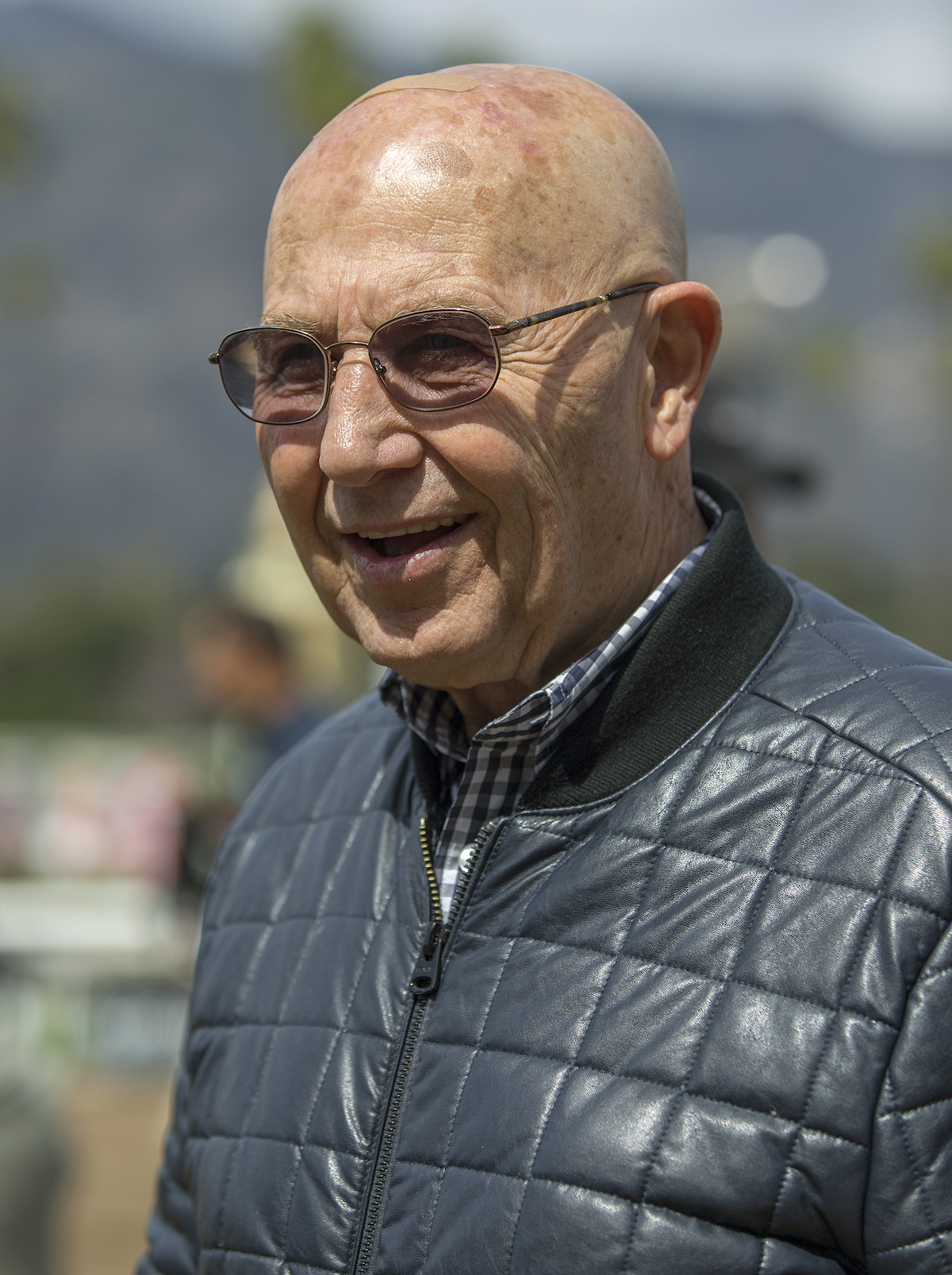
Veteran Breeders’ Cup Classic-winning trainer who famously foiled a Triple Crown bid with Touch Gold in 1997 died last week aged 81
 I met David Hofmans at his Santa Anita barn in the early 1980s. At about 40, he was already well along with his career as a horse trainer.
I met David Hofmans at his Santa Anita barn in the early 1980s. At about 40, he was already well along with his career as a horse trainer.
I thought, this is too nice a guy to cut much of a swath in the cutthroat crowd that was thoroughbred racing in Southern California. I thought, it's too bad David doesn't have more good horses; there'd be more reason to engage him in delightful interviews.
Then 1996-97 came along: Hofmans saddled an underachieving colt named Alphabet Soup to win the richest race of the year, the Breeders' Cup Classic, in Toronto, and several months later, in New York, he and Touch Gold, a horse with feet like eggshells, won the Belmont Stakes to deprive Silver Charm of the Triple Crown and a $5 million payday.
Those were the times when it was not unusual to talk with Hofmans daily, and look forward to every minute of it. Sincerity was his middle name.
It was fitting that Hofmans would notch his long-overdue breakout race with Alphabet Soup, who was owned by Georgia Ridder, widow of a publishing kingpin. She was the dowager who began feeding a desperate Hofmans quality horses when his barn was down to a few stragglers. He was into analysis and thoughts of another career had gone to the front burner.
Of all the trainers at all the tracks in all the world, why did Georgia Ridder, a grande dame of the sport, throw in with Hofmans? “Because of his patience with horses and I liked his personality,” she said.
Hofmans was an up-and-down horseman all his life. Nobody better understood the fickleness of a cruel business. The other day, at 81 and his stable reduced to six ordinary horses, David died by his own hand, at his home near Santa Anita.
I’m not sure about the correlation between horse racing and suicides; there have been no studies. Offhand, I remember other suicidal trainers, such as Eddie Gregson and Doug Peterson, both friends.
Gregson won a Kentucky Derby with Gato Del Sol; Peterson trained the inimitable Seattle Slew late in his career (a surviving Peterson son currently pitches for the New York Mets).
 And of course there was Red McDaniel, who threw a saddle on a horse in the paddock at Golden Gate Fields, then drove to the Golden Gate Bridge and jumped off. They found betting tickets on that horse in McDaniel's pocket when the body was recovered.
And of course there was Red McDaniel, who threw a saddle on a horse in the paddock at Golden Gate Fields, then drove to the Golden Gate Bridge and jumped off. They found betting tickets on that horse in McDaniel's pocket when the body was recovered.
The jockey suicide list is hard to quantify, because several have died by what’s been called ‘accidental overdose’. Among those definitely outside that category are the pioneer women jockeys, Mary Bacon and Penny Ann Early, and Eric Walsh, whose self-inflicted death followed his criminal conviction in what became known as ‘The St. Valentine's Day Massacre’ at the old Bowie track.
Back to Hofmans. The day of the 1997 Belmont, Touch Gold – with his sore hoof protected by an acrylic patch – was trying to win about $400,000 for Frank Stronach's partnership. A win and and a Triple Crown sweep by Silver Charm would have meant $5m and racing immortality for his owners, Bob and Beverly Lewis.
A few years after Touch Gold’s upset win, Hofmans reflected on the disparity. It was just like him when he said: “The only thing that bothered me was what cost the other people. I'm talking about everybody connected with Silver Charm – from the owners, trainer and jockey, all the way to the groom, who would have shared in the stakes money.”
Several months after Touch Gold's epic win, Stronach inexplicably took that colt and 25 others away from Hofmans. The mercurial auto-parts magnate signed an East Coast trainer, Patrick Byrne, to a five-year contract to train the entire stable.
 Hofmans had sensed he was on the way out, and gave Stronach a tour of a California breeding farm that was on the market, but Byrne prevailed.
Hofmans had sensed he was on the way out, and gave Stronach a tour of a California breeding farm that was on the market, but Byrne prevailed.
Philosophical and forgiving, Hofmans continued to prominently hang a framed photo of Touch Gold's Belmont near the door of his barn office. Frank Stronach could take away the horse but not the achievement.
Before Touch Gold was to run later, under Byrne, in a big race at Del Mar, Hofmans said: “I’ll have mixed emotions. If he wins [which he didn't], I’ll be happy for the outfit, and a man like Stronach, who’s been good for the game. But I’ll also be depressed at the thought that I no longer have him.”
Free House won that Del Mar race. Sitting next to me in the press box, colleague Jim Murray was writing: “The bridesmaid [Free House] finally caught the bouquet. The ‘best friend’ got the girl in the Warner Bros. movie for a change. The sidekick saved the fort."
When we had both finished our work, I turned to Jim and said: “How did it go?”
“Well,” he said, “I got it in on time.” Murray, a Pulitzer Prize winner, was never one to trumpet his own stuff.
About 24 hours later, Jim Murray was dead. He left Del Mar, went home to Brentwood and had a fatal heart attack. Jim Murray's widow was Linda Murray. When David Hofmans died the other day, he was married to Linda Murray, a widow once more.
• Bill Christine, who covered horse racing for the Los Angeles Times for a quarter-century, is working on a novel and a true-crime book
• Previous articles in our View from the Rail series
America’s favorite racetrack – but just what is it that makes Saratoga so great?
View the latest TRC Global Rankings for horses / jockeys / trainers / sires


